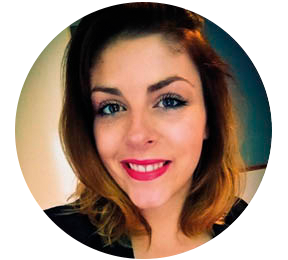Family Medical History & Life Insurance
Request a Callback
By clicking on submit I / We give consent for you to call me / us on the number provided to discuss my / our financial requirements.
Caring - Understanding - Reliable - Advice
Home » Health Conditions » Family Medical History & Life Insurance
Family Medical History & Life Insurance
When applying for life insurance you will usually be asked a series of questions about your family.
This is so that the insurer can figure out if there are medical conditions in your family, that make you at a higher risk of having a claim.
 Family medical history is something that many insurers will ask you about when you apply for protection insurance. When insurers ask this they mean your blood-related parents and siblings. Grandparents, aunties, uncles, cousins, children, do not factor into most applications.
Family medical history is something that many insurers will ask you about when you apply for protection insurance. When insurers ask this they mean your blood-related parents and siblings. Grandparents, aunties, uncles, cousins, children, do not factor into most applications.
You will usually be asked if a close family member has had something like cancer, heart attack or a stroke, before the age of 65 (sometimes age 60).
Your answers to these questions will not necessarily affect the terms that you are offered for life insurance.
For example, if you have a single family member with diabetes or skin cancer. This is probably not going to cause the insurer a lot of concern. You could be offered standard terms for life insurance.
It is good to be prepared that there are times when family medical history can result in the insurer increasing the life insurance premium.
This can happen where multiple family members have the same condition, conditions have been diagnosed at a young age, or a condition which has been proven to indicate a higher risk to direct family members (e.g. Huntington’s disease).
It’s worth checking with your parents and siblings about their medical history, before you apply for your cover. Remember though, that you only need to tell the insurer about specific conditions they ask you about. If they don’t ask, you don’t need to tell them.
Family Medical History & Life Insurance Podcast
Genetic Testing & Life Insurance
Genetic testing is an area that we are often asked about. You do not generally need to tell insurers about predictive genetic tests that you have had.
There are two types of genetic testing:
- Predictive
- Diagnostic
Some people have genetic tests to see if they carry the active BRCA genes, this is an example of a predictive test and is usually carried out because of family history. If you have had this test and your results were positive, this means that you have a greater risk of developing breast cancer, but it is not a definite.
If you have the active BRCA gene, but have not had breast cancer, you might not need to tell the insurer about it.
A slightly trickier one can be predictive genetic tests for Huntington’s disease. If you are applying for life insurance with a value over £500,000, you may need to tell the insurer if you have had a positive Huntington’s disease test. The same applies for critical illness cover over £300,000 and income protection over £30,000 per year.
Diagnostic tests are carried out when you have had symptoms that indicate that you might have a certain medical condition, an example is polycystic kidney disease. This kind of genetic test is likely to need to be disclosed to the insurer, as your symptoms will probably fall under some of the questions.
Family Medical History & Critical Illness Cover
Critical illness cover pays out a cash lump sum of money, if you are diagnosed with a medical condition that is listed in the insurer’s claims set e.g. cancer, heart attack, stroke.
Critical illness cover for someone that does have a family medical history disclosure, is treated in a similar way as a life insurance application.
The insurer will consider the type of medical condition that your family member had and the age that they were diagnosed. This will help them to determine if they feel that there is an increased risk of you being diagnosed with the same condition.
In some cases you may find that your critical illness cover policy comes with an increased premium and/or exclusion for conditions related to your family members health.
As an example, if your mother was diagnosed with breast cancer at a young age, then you might find that your policy comes with a breast cancer exclusion.
You are more likely to have a condition excluded from the policy claims set, than you are to see a premium increase. There is also the chance that you will be given standard terms for cover too, no exclusion or price increase.
Family Medical History & Income Protection
Income protection pays you a replacement of your monthly income, if you are unable to work due to ill health.
Income protection will also take into account your family medical history. The main thing with income protection is that the insurers want to know if there is anything that could place you at a higher risk of taking time off work.
It is your personal health that will have a big influence upon the terms that are offered. Some family medical history may lead the insurer to place an exclusion on the policy. It is possible that there may be a price increase on the premium.
Whilst an exclusion and higher premium are sometimes offered, this is not always the case. Family medical history covers a lot of conditions and even then, there is not set a rule on what might be offered.
You may also find that you are offered standard terms for income protection. It really comes down to your individual circumstances.
Family Medical History & Travel Insurance
When you are going on holiday the last thing that you need is to worry about whether your insurance is right. We work alongside a travel broker that can talk you through all the ins and outs of travel insurance.
Take a look at our dedicated travel page here.
Video Transcript
Hi, today I’d like to talk to you about Mr F. Freddie came to us, he was in his early 20s. He was a non-smoker and when we spoke to us we identified that he did have a need for life insurance based upon his circumstances.
Now with Freddie he’d come to us for a couple of different reasons and one of them was his family medical history. So in his immediate blood relatives, so that’s parents and siblings only. We’re not talking about nieces, nephews, uncles, grandparents anything like that. Just right in the middle of parents and siblings. He had had one person that had been diagnosed of pancreatic cancer and another person that had been diagnosed with Parkinson’s disease. Now both of those conditions with many insurers do come up in the family history questions sets, if they were diagnosed before the age of 65.
Another thing for Freddie was that for quite some time, he had experienced anxiety and depression and over 10 years before speaking to us, he had at one point attempted suicide. Now based upon his circumstances and what his needs were, we were very happy to be able to arrange for him to have 240,000 pounds with the life insurance over 40 years for a monthly premium of 14 pounds.
What is Family Medical History?
When applying for an insurance policy such as life insurance, critical illness cover or income protection, you are likely to be asked about your family history.
Generally these questions are aimed at your blood-related siblings and parents only. They should not need to know about your grandparents, children or other family members.
Insurers are not generally allowed to ask you about the results of any predictive genetic testing that you have undertaken. These tests are used to determine if you are at a higher risk of certain medical conditions e.g. BRCA, etc. But, being at a higher risk does not mean that you are going to get them.
If you are taking any preventative medication or treatment, have been diagnosed with a medical condition or have shown symptoms, you will most likely need to detail these in your application. At which point the insurer may ask for further details.
Insurers appreciate that some people are adopted or are long-term estranged from their families, and that it is not always possible to answer these questions. They have ways to support you if this is the case.
Family Medical History
Below is a list of medical conditions that can sometimes be hereditary. If your parents or siblings have had any of these conditions, it is a good idea to have some information to hand when you apply for your insurance. This will include the type of condition and their age at the time of diagnosis.
- Alzheimer’s Disease
- Angina
- Bowel cancer/Colon cancer
- Breast cancer
- Diabetes
- Heart attack
- Huntington’s Disease
- Myotonic Dystrophy
- Ovarian cancer
- Parkinson’s Disease
- Polycystic Kidney Disease
- Stroke
Common Questions
I’m sorry that your mother has passed away. When it comes to life insurance, your mother passing from breast cancer is something that may be asked. You should be able to get life insurance, assuming that there are no other bits that crop up during the application process.
It is really important to research the market to find you the best insurer. The price of the policy will be a key factor, but there are also a lot of extras like access to remote GP services available with some policies. These could be worth considering.
I’m sorry that you have been declined insurance. I was declined insurance in the past for different reasons, and it doesn’t feel great.
I wouldn’t expect many insurers to decline your insurance for this reason. It could be that there was something else on the application that caused the decline, maybe your occupation or your own health in combination with your dad’s.
It would be a good idea if we can chat so that I can figure out why you were given that decision. We can then either challenge the decision or place your life insurance with an insurer that is more suited for you.
Client Reviews
Cura Financial Services has been rated 5 out of 5 based on 749 reviews.
Review by Roger on 16th May 2020
“Krystle was very knowledgable and helpful and managed to arrange my cover very smoothly and efficiently.” - 5
You can read more of our reviews here.
- For more information on specific health conditions, pastimes, occupations and countries please select here:

Dr Kathryn Knowles Phd
Author
This page was written by Dr Kathryn Knowles Phd, an award-winning insurance adviser. To read more about Kathryn please see her bio here

Client Reviews








Talk to a Friendly Adviser
Get a Quote
What We Offer?
- Experienced and knowledgeable advisers
- Specialist advice with no fees to pay
- Full assistance with all of your paperwork
- Put your policy into trust at no cost
- A dedicated insurance adviser for you
Our Recent Awards





































